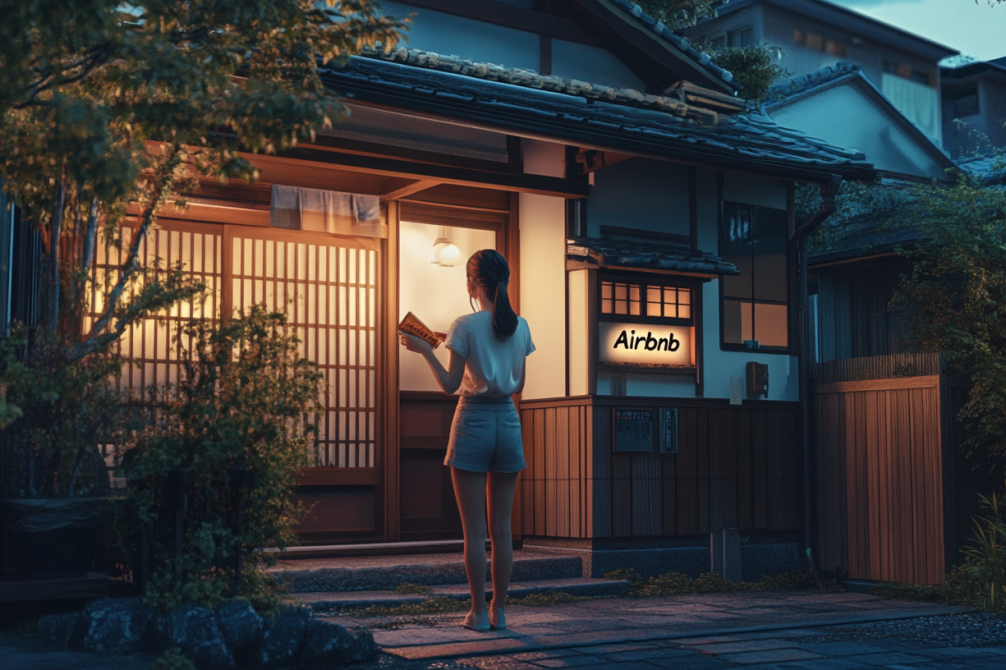When people hear I live in Japan, one of the first things they bring up these days is the crazy-cheap houses.
“You can buy a whole house for $25,000?! That’s less than a car back home!”
And they’re not wrong—those houses do exist. But what often gets missed is what that house comes with… or more accurately, what it doesn’t.
Buying a house in Japan is easy. Living in that house? That’s a whole other story.
I’m not here to talk you out of it—in fact, if you do it right, it can be one of the most rewarding, financially savvy moves you’ll ever make. But if you’ve never lived in Japan, especially outside of the big cities, it’s easy to overlook the practical stuff. The kind of stuff you only learn after living here for years.
Things like:
- How far is the nearest supermarket or convenience store?
- Is there a hospital or clinic nearby?
- What about dental care or emergency services?
- How exactly are you getting from Narita Airport to your new front door?
- Is the area prone to typhoons, earthquakes… or landslides?
Because here’s the truth: some of these houses are cheap for a reason.
⚡ TL;DR Summary
Yes, you can buy a house in Japan for $25,000—but can you actually live there? In this post, I walk you through the often-overlooked details foreign buyers miss: access to transport, daily necessities, medical care, and investment potential. With the right guidance, the dream can work—but local insight is everything.

Great House, But Can You Actually Get There?
So, you’ve found your dream countryside escape. Maybe it’s a traditional kominka tucked into the mountains, or a seaside fixer-upper with ocean views. It looks amazing in the listing—and the price? Even better.
But before you start mentally furnishing it, let me ask you this:
How are you getting there?
I’m not being dramatic here. You’d be surprised how many foreign buyers fall in love with a property online, only to later discover it’s a two-hour bus ride and a 40 minute walk from the nearest train station—Oh and did I mention, that bus only runs twice a day.
Let’s walk through it:
- When you land at Narita or Haneda, can you take a direct train or express bus to the area?
- Is there a local station nearby—or at the very least, a reliable bus stop within walking distance?
- Will you need to rent or buy a car to even access your home?
- If something breaks and you need help—can a plumber or electrician actually get to you?
These are the kinds of things that don’t show up in the real estate photos.
Now, if you love the idea of remote living, that’s great—just make sure you’re realistic about the logistics. Because even something as simple as a grocery run can turn into a half-day operation if you’re too far out.
There’s a balance to be struck between charm and practical access. And trust me, if you’ve ever had to drag four bags of groceries uphill in 90% humidity, that $25k kominka starts to feel a bit less magical.
Now, maybe you’re fine with needing a car. In some areas, it’s not optional. But you’ll want to factor in a few things:
- Do you have a Japanese driver’s license, or are you eligible to convert yours from your home country?
- Annual car inspections (shaken) aren’t cheap—they can easily run ¥100,000 or more.
- Parking fees, tolls, insurance, and snow tires if you’re in the north… it all adds up.
And here’s something you might not think about right away:
What happens if you leave your car parked for months while you’re back home?
Let me tell you from personal experience—your car doesn’t care that you were off having the time of your life backpacking through Southeast Asia. When I came back after a few months away, I found a very dead battery waiting for me in the driveway.
So now, whenever I hear someone casually say, “I’ll just leave the car there until my next visit,” I can’t help but smile. I’ve been there.
If you’re only planning to visit a few times a year, just know that owning a car in rural Japan isn’t a set-it-and-forget-it situation. It needs upkeep—even when you’re not around.
It’s Not Just About the House—It’s About the Life Around It
Let’s say you’ve found a place that’s accessible enough. You’ve got a car, maybe a train line nearby, and you’re ready for that slower pace of life. That’s great.
But let’s zoom out a bit. A house isn’t just where you sleep—it’s where you live.
And that means thinking about the day-to-day stuff that keeps life moving:
- Where’s the nearest supermarket?
- Is there a decent hospital or clinic in town?
- Can you get to a dentist without planning a half-day trip?
- What about emergency services? Police? Fire station?
- Are you in a zone prone to landslides, flooding, or heavy snow?
Even small things like getting a package delivered, or finding someone to fix your water heater, can become real challenges if you’re too far out.
These are the kinds of details that don’t come up when you’re scrolling through property photos or fantasizing about sipping coffee on your tatami floor. But they matter—a lot.
You don’t want your dream home turning into a part-time puzzle where every basic task feels like a logistical mission.

Buying for Airbnb or Investment? Look Past the Price Tag
Not everyone’s buying a place to live in full-time. Maybe you’ve got Airbnb dreams or see a run-down house as the perfect renovation project to flip or rent out.
Totally valid. Japan has a rising number of foreign investors looking to get into short-term rentals or turn rural properties into unique stays. But just because the house is cheap doesn’t mean it’s the right call.
You’ve still got to ask:
- What’s around the property that would make someone want to stay there?
- Is there a station, bus line, or major road nearby?
- Can guests get there without messaging you five times in a panic from a rice field?
- Are there shops, restaurants, or nature spots that actually give it draw?
And then there’s the big one: does the area allow short-term rentals at all?
Minpaku (private lodging) laws vary by region, and some towns flat-out ban Airbnb-style operations—or require strict approvals.
Beyond that, think long-term:
- Is the town shrinking or growing?
- Are there plans for redevelopment or infrastructure upgrades?
- What are the current tourism trends in the region?
These are the things that don’t show up in the listing, and if you’re not plugged in locally, you’re just guessing. That $25k property might be surrounded by vacant homes for a reason.
An investment is only as good as the strategy behind it—and local insight can make or break your plan.
“Well, this is just great. Now I don’t even want to buy a house.”
I get it. After all that, you might be thinking, “Maybe I’ll just stay in a hotel forever.”
But that’s not why I’m telling you all this.
I’m telling you because at Relocate Japan, we’re not just here to show you listings or chase commissions. We’re here to make sure that the dream in your head actually lines up with reality.
Buying a property in Japan—especially from overseas—isn’t about finding the cheapest house. It’s about finding the right fit: the right location, the right access, and the right community to support the kind of life—or investment—you’re aiming for.
There are incredible opportunities in Japan. You can buy a beautiful home for an unbelievably low price. You can invest in a unique Airbnb or holiday property. You can live the peaceful countryside life—if it fits your goals and lifestyle.
So instead of a warning list, here’s a quick guide to help you move forward with confidence:
🗺️ Choosing the Right Area
✔️ Look for places with decent access to public transport, even if it’s just a nearby bus stop.
✔️ Don’t be afraid to go a little off the beaten path—but make sure there’s a path to begin with.
✔️ Use tools like Google Street View and train line maps to get a feel for connectivity.
🚗 If a Car’s in the Picture
✔️ Make sure you can get or convert a driver’s license easily.
✔️ Budget for things like shaken, insurance, and maintenance.
✔️ Consider a compact hybrid if you’re only using it occasionally—and bring a battery charger just in case 😉
🏥 Thinking About Daily Life
✔️ Check for access to supermarkets, clinics, post offices, and essential stores.
✔️ Look for community centers or local groups—it’s easier to settle in when you’re not isolated.
✔️ Use hazard maps to double-check for landslides or flooding risks—it takes five minutes and can save you years of stress.
🏡 Buying with Purpose
✔️ Be clear: is this an investment, a getaway, or a future base? Let that guide your search.
✔️ If you’re aiming for Airbnb, check minpaku rules and tourist potential before you buy.
✔️ Look for areas with signs of growth or revitalization—they’re often full of potential.
Let’s Find the Right Fit, Together
The goal isn’t perfection—it’s alignment. You don’t need the fanciest house or the cheapest deal. You need the one that fits you.
That’s what we’re here for. At Relocate Japan, we bring the local knowledge, cultural context, and real-world experience to help you make smart, confident decisions. Whether you’re looking to relocate, invest, or just explore your options, we’ll help you find a property that actually supports the life you want to build.
Because this isn’t just real estate—it’s your future.
Let’s make it a good one.

